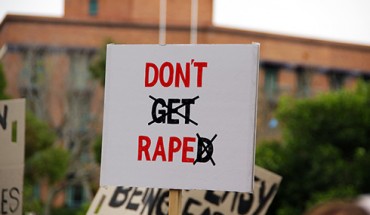As we have progressed in our understanding of how and why certain gender conformities have developed throughout human history, sociologists and activists have begun to frequently use a newly minted term called “toxic masculinity”. There is, understandably, significant misunderstanding about what the term actually means. The most important remedy, perhaps, is to first dispel myths about what toxic masculinity is and identify what it is not. The term does not mean that men are inherently “toxic” rather, society creates expectations for male behavior that are often harmful based on unfair stereotypes about what men should be and how they should act. Here we’ll attempt to explain what toxic masculinity actually is, and some potential ways to correct it.
It’s Culturally Based
From an early age, men and boys are often told to “man up”,“stop acting like a girl”, and similar admonitions. This creates an environment where displaying emotions, acting “weak” or vulnerable, and opening up is discouraged. Instead, toughness and strength are encouraged. Anger becomes one of the only acceptable expressions of negative emotions, leading to a violent culture and endangering all members of the community men, women, and children.
It Hurts Everyone
Suppressing vulnerability is emotionally unhealthy and not sustainable in the long term. All suppressed emotions eventually find an outlet, whether healthy or unhealthy, productive or unproductive. Unfortunately, toxic masculinity often encourages the expression of negative emotions in the latter manners. Violence, anger, destruction, and rage are unfortunately the norm or what emotions men are expected to display. These sorts of expectations can be especially damaging for children who have already endured trauma — 25% of male sexual abuse victims don’t come forward as children in part because of the pressure to be seen as strong and independent.
Repairing the Damage Caused by Toxic Masculinity
The good news, as we grow into a more compassionate and progressive society, is that many organizations are doing the hard work of reconstructing masculinity into a healthier manifestation. What it means to be a man doesn’t have to necessarily include violence and stunted emotional states. Workshops, support groups, counseling, and most importantly, educating parents about how to raise emotionally healthy young men all to translate into a brighter, more open future for everyone. Together, we can reshape what masculinity means and promote a more harmonious situation for all genders to live together in peace.
Read more on this topic: School shooters usually show these signs of distress long before they open fire, our database shows




